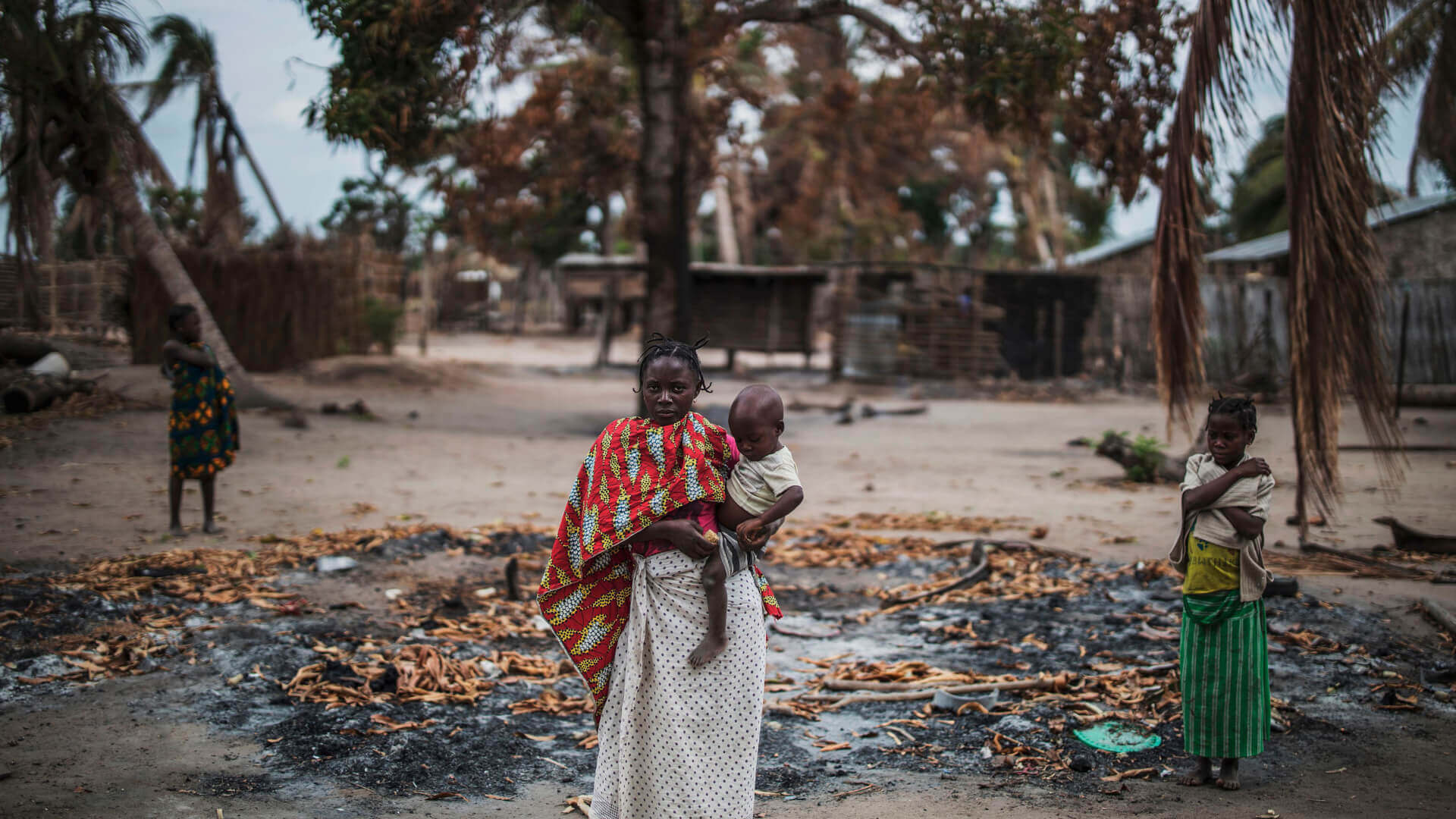Mozambique’s highly volatile Cabo Delgado has seen a decrease in Islamist attacks in the new year due to what experts say is improved counter-insurgency efforts by the armed forces.
The gas-rich province has been a hotbed for extremism since 2017, and has since become overrun by the Islamic State and local militants—many of whom cross over from Kenya and Tanzania—who are part of a local terror group called either Ahlu Sunna Wal Jama or Ansar al-Sunna, meaning “supporters of tradition”.
Since October 2017, more than 1,100 civilians have died in terror-related incidents, and these incidents rose by 300% during the first four months of 2020 compared to the same period in 2019. As a result of this conflict, around 250,000 people have been displaced.
Therefore, the fact that only 10 terrorist attacks were recorded in January, after 30 in December, seems to suggest that the military has formed a more effective strategy to contain the insurgents. In fact, it was recently reported that Mozambican forces had killed six ‘ringleaders’ of the Islamist movement in the province.
At the same time, it has been reported that the militants are running out of food. It is thought that this has begun to reduce the numbers of the terror groups who recruited many individuals who were not drawn to any religious or ideological cause but were merely looking for money, food, and shelter.
In a country where over 56% of the population is Christian and just 18% is Muslim, terror groups haves capitalized on anger and frustration from decades of disenfranchisement, marginalisation, and unemployment among the minority Muslim community. For instance, following the discovery of oil and gas deposits in Cabo Delgado, the government licensed “the entire district of Montepuez to mining companies, leaving communities without land to grow their food”.
Simultaneously, many have been displaced from resource-rich area to make way for mining and exploration, which has deprived the local population of “water, farmland, wild food, medicinal plants, rubies for income and construction material”. Consequently, terror groups have been able to recruit several young soldiers to their cause, some as young as 14. Seeing as the militants have failed to deliver on their promises of protecting their recruits in a way that the government hasn’t been able to, their popularity is now decreasing.
The armed groups’ biggest victory came in November, when militants captured the small harbour town of Mocimboa da Praia, taking over the town’s port and its armoury. This was particularly concerning, as it may indicate the surrender of crucial resources to terror groups. The town’s port represents a strategic and economic foothold, given that both Total and ExxonMobil have liquefied natural gas projects just a short distance away. And despite the visible gains the military has made, militants remain in control of the town.
And experts like Eric Morier-Genoud have cautioned against celebrating the downturn in attacks, saying that the militants could simply be trying to “extend their range into another province”.
Nevertheless, it is promising that locals appear to be more receptive to and welcoming of security forces than they were in the past, perhaps due to the lack of security and protection offered by the militant groups.
The marginal gains made by the security forces are expected to rise through the assistance provided by foreign forces. Former colonial power Portugal, from whom Mozambique attained independence in 1975, has said it will “organise logistics and train the local army to fight insurgency”. Likewise, Mozambique has also requested the European Union (EU) to help train soldiers.
Help from regional allies, though, has been less forthcoming. The Southern African Development Community (SADC) planned to meet in January to discuss the situation in Cabo Delgado, but this meeting has now been “permanently postponed”.
At this stage, Mozambique’s immediate neighbours have not fully appreciated the impact that violence in Cabo Delgado can have in other countries, as some experts contend that the conflict could spread to Tanzania, Zambia, and Malawi. Nevertheless, it is promising to see that local forces now appear to be better prepared to solve the crisis by themselves.
Security Forces Appear to be Containing Islamist Insurgency in Mozambique’s Cabo Delgado
The fact that only 10 terrorist attacks were recorded in January, after 30 in December, seems to suggest that the military has formed a more effective strategy to contain the insurgents.
February 12, 2021

SOURCE: MARCO LONGARI / AFP VIA GETTY IMAGES
